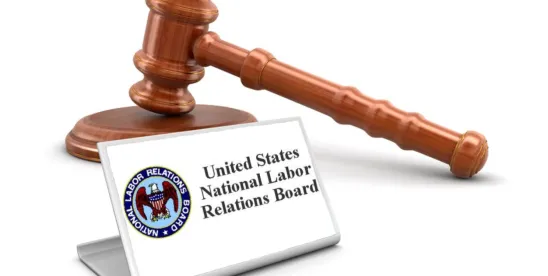On August 22, 2024, the National Labor Relations Board (the ““Board”“) issued a decision in Metro Health, Inc. d/b/a Hospital Metropolitano Rio San Pedras, 373 NLRB No. 89 (2024), marking a significant departure from its previous stance on accepting unilateral consent orders. This decision effectively eliminates the use of consent orders as a means of resolving unfair labor practice (“ULP”) charges—a practice that had been in place for over three decades.
Background concerning Consent Orders
Historically, the Board has allowed employers to resolve ULP charges through bilateral settlement agreements. These agreements involve mutual consent between the employer, the NLRB General Counsel, and/or the charging party (typically, the union or an employee).
Another method, known as a consent order, allowed employers to propose resolutions that could be approved by the Board even without the consent of the opposing party. This practice was first approved by the Board, in Electrical Workers, 188 NLRB 855 (1971), where the Board accepted an employer’s proposed resolution despite objections, provided that it offered “a full remedy for all of the violations alleged in the complaint.”
Over time, the standard for approving consent orders evolved. By 1987, in Independent Stave Co., 287 NLRB 740 (1987), the Board began applying a “reasonableness” standard, approving settlements if they “substantially remedied” the alleged violations and were deemed reasonable. This approach extended to consent orders, granting the Board and Administrative Law Judges (“ALJs”) discretion in resolving charges.
However, in 2016, the Board, in United States Postal Service, 364 NLRB 1704 (2016), reverted to a stricter standard, ruling that the Independent Stave approach was unsuitable for consent orders, as it did not adequately consider the lack of mutual consent from the charging party. This more exacting standard was short-lived, as the Board, in UPMC, 365 NLRB 1418 (2017) (discussed here), returned to the Independent Stave standard of applying reasonableness to consideration of consent orders.
The Metro Health Decision
In Metro Health, the Board not only overturned UPMC but significantly, ended the practice of accepting consent orders altogether. The Board’s decision was driven by several considerations:
- Lack of Regulatory Basis: The Board reasoned that its rules and regulations do not explicitly authorize consent orders since such orders do not require the mutual agreement between the parties.
- Prosecutorial Authority: The Board expressed concern that consent orders undermine the GC’s authority to control the prosecution of ULP charges, as they allow ALJs to resolve cases without the GC’s input.
- Public Policy: The Board argued that consent orders conflict with the National Labor Relations Act’s (“NLRA”) emphasis on mutual settlements and the efficient resolution of ULP charges. Unlike mutually-agreed settlements that are intended to foster “industrial peace,” consent orders—according to the Board—do not represent a true resolution of disputes and thus may not support the NLRA’s goals as effectively.
- Administrative Burden: The Board highlighted the substantial effort required to evaluate consent orders, noting that this burden would exist regardless of the standard applied.
Takeaways
The Metro Health decision marks a notable shift in the Board’s approach to resolving ULP charges, as employers must now seek mutual settlement agreements (including consent from the charging party) or prepare for litigation. This change increases the stakes for employers facing ULP charges, as it reduces the likelihood of pre-hearing resolutions on terms favorable to employers.
We will continue to provide updates on this important topic as developments occur.




 />i
/>i

